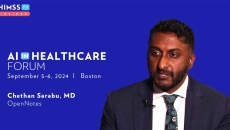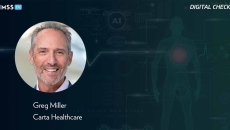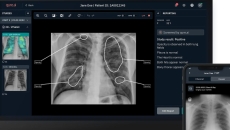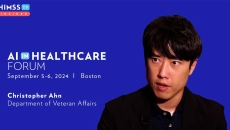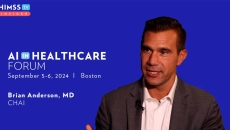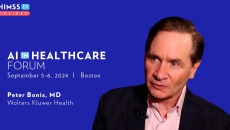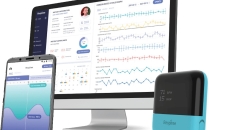Analytics
Dr. Chethan Sarabu, AI and informatics strategist at OpenNotes, discusses how genAI and LLMs are enabling a new level of patient empowerment for direct use of AI in their care across a range of tasks, including questions about their diagnosis.
OpenAI has launched the OpenAI Academy to support developers and companies in low- and middle-income countries who are leveraging AI to solve problems in their communities.
Over the next year health system IT leaders can expect real and pragmatic applications of AI beyond the experimentation mode into real projects with real value, says Greg Miller, vice president of business development at Carta Healthcare.
Also, Mediwhale raised $12 million for its United States expansion.
Christopher Ahn, biomedical engineer supervisor at the U.S. Department of Veteran Affairs, says that for clinicians who use medical devices an AI chatbot could answer questions and offer support, which is more immediate than filing a service ticket.
Dr. Brian Anderson, cofounder and CEO of CHAI, talks about assurance principles and overlaying an AI model's life cycle so that software developers and other stakeholders can consider best practices when deploying AI within healthcare workflows.
Dr. Lukasz Kowalczyk, a physician at Colorado-based Peak Gastroenterology Associates, discusses the need for a multidisciplinary strategy for AI adoption - and building a clinically valuable algorithm while ensuring ethical use.
Peter Bonis, chief medical officer of Wolters Kluwer Health, discusses health provider and consumer skepticism around AI, supporting trust in AI, the adoption cycle of the technology, and the importance of understanding its limitations.
Also, See-Mode has received the first US FDA approval for a thyroid ultrasound analysis AI solution.
Also, Japan has approved iRhythm's AI-based continuous ECG monitoring system.
